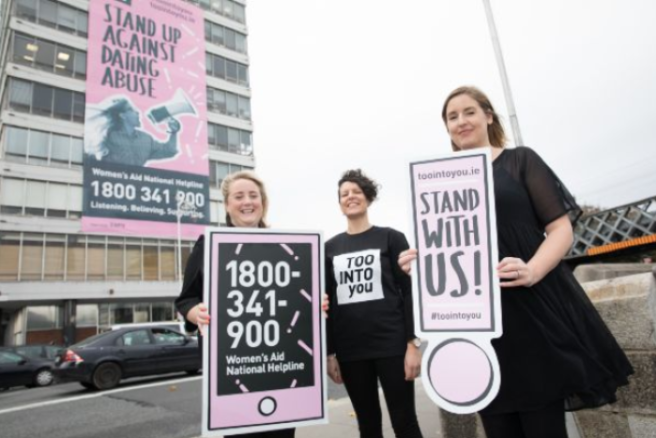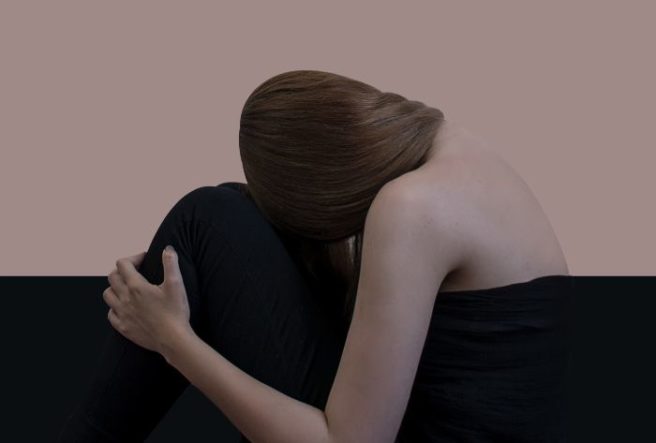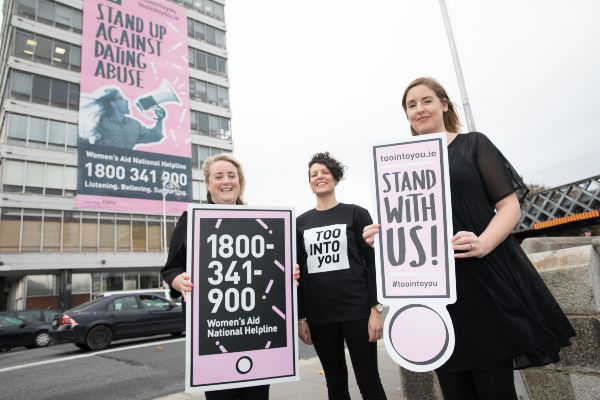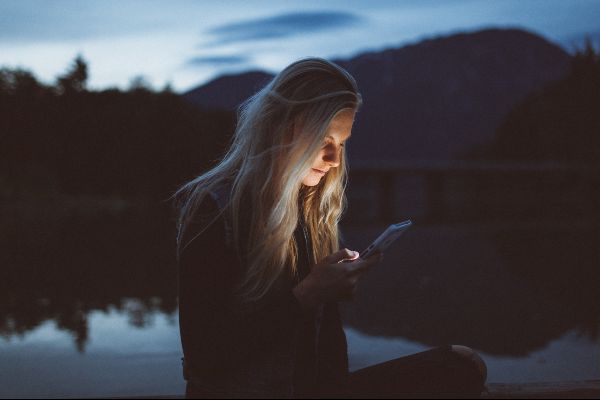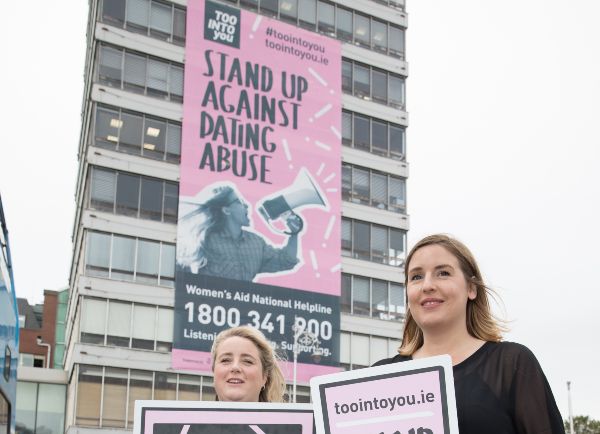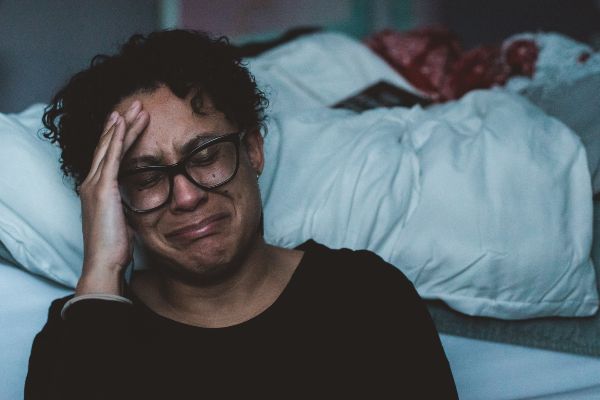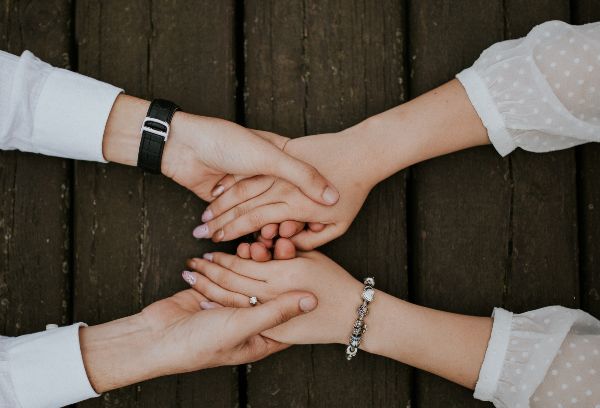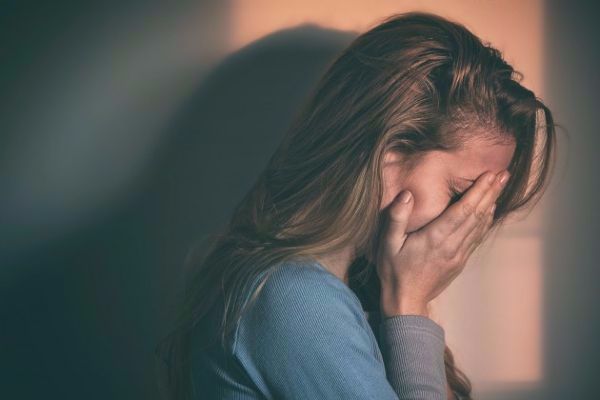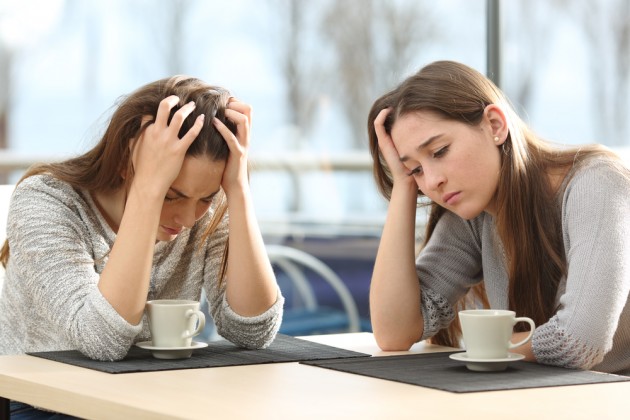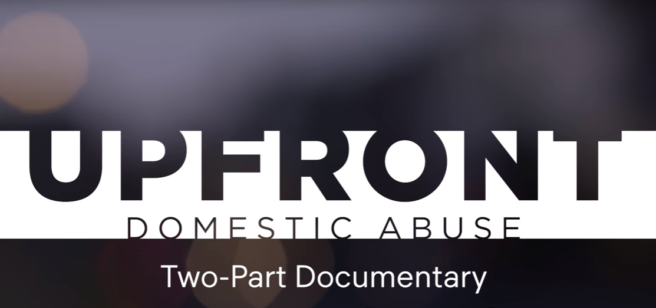This is Emily’s story of dating abuse.
He was my first boyfriend and my first love, my first sexual partner. His abusive behaviour wasn’t apparent at first, it just kind of crept in.
We dated on and off for three years while we were in college. During the first six months everything was great, then we had our first fight and that’s when his controlling behaviour started.
He was a verbal abuser, an emotional abuser, and yes there was some physical abuse too.
It started off with his manipulative and controlling behaviour, then accelerated to verbal abuse and finally physical abuse.
I started doubting myself as to whether this behaviour was acceptable or normal within a dating relationship, was it really happening or was I blowing things out of proportion. I couldn’t understand how we had gotten to this.
It’s really hard to reconcile that person you thought you were dating with this new person that you are now encountering. It was so hard to wrap my head around it, that this behaviour could be described as abuse. After all, that only happened to people who were living together, were married or had kids.
I never told anyone, not until we had completely broken up. I was too scared. There was always the threat looming – “you better not tell anyone, or else; you better not try to leave me, or else”. That was enough to deter me.
In fact, I only told my mum six months after we had broken up. I didn’t want to upset her, to worry her.
I was so young that I thought if I just stay with him and do what he wants me to do, then it’ll go back to the way that it was. Obviously I can now see that was never going to happen, but I was naive. It was a lesson that I was going to have to go through, and learn the hard way.
I escaped by moving abroad – I was in college and took the opportunity to travel for the summer and that was the end. That’s how I got out, and I never went back.
Thankfully he’d moved on too, but that was tricky as he was dating another girl in college. Was he abusing her the way he abused me? Could I be a bystander and watch history repeat itself?
He was very targeted in his abuse, he made me lose all of my confidence. He was constantly putting me down, telling me that I wasn’t good enough, that I wasn’t attractive enough.
He would often attempt to choke me, to the point where I felt I could pass out and then he would stop. He loved the power, and he would laugh afterwards, mocking me, insinuating I was stupid if I thought he was really going to hurt me. That he was just messing, just playing with me.
He was careful not leave a mark on me where someone could see. He was clever like that. He was very calculated.
We met in college and we were in some classes together. He loved power and so he would feel more powerful when he put me down, so he used to text me during class with abusive and critical messages, especially when I was delivering a class project or presentation.
He wanted to see me visibly upset and not be able to do anything about it, he liked the control, watching me squirm, he liked to put me off, to see me falter and then he would laugh at me.
He distanced me from all of my friends and family. In fact, he befriended some of my friends in college and told them lies about me so that they would think I was an unkind person, and then they were his friend and no longer mine.
He ran for Student Union president, he was popular, he wanted a career in politics. He was a bully though and some people could see through it obviously as he never won that election. He knew how to talk the talk, he was an experienced debater, so he was excellent at talking people down and pulling the wool over people’s eyes.
A few months after the relationship ended, I went to the Gardaí to make a complaint.
I wanted it to be known; to be on the record should someone else ever make a complaint about him. I had three years of text messages and emails but I had deleted them all when my relationship ended so I didn’t have the physical evidence to show the Gardaí.
So, it became a simple case of she said / he said. I would urge anyone in an abusive relationship to document everything in a diary, to keep a record of texts, emails and photos of physical abuse – you never know when you might need them, and they may ultimately save your life or the life of some other poor girl.
I was lucky, I got really good support from the police, and my college, DCU, were brilliant. One of lecturers was really supportive and he helped me to get counselling through the college services.
Now, after my experience I wanted to help others, I am passionate that other people should not be experiencing abuse within a relationship and I want to support them on their journey to safety.
I don’t think dating abuse is talked about enough, I didn’t even know it was a thing until it happened to me, and even then it was only when I left him that I realised just how wrong it was. It was only after two years of counselling that I accepted that it was abuse, I doubted myself, I questioned myself, I wondered whether I was just being a drama queen, if I was high maintenance or over-sensitive.
Both girls and boys should be spoken to about relationship etiquette in school, what’s acceptable and what is not so they can navigate their early relationships more successfully.
So, both boys and girls know where the boundaries are in a relationship, that if they are uncomfortable with any part of their relationship that they should speak up and not quietly suffer.
In particular, girls need to learn to listen to and trust their instinct and learn to assert themselves when they feel vulnerable, threatened, uncomfortable or unsafe.
This is not just about consent for sexual experiences, this is about consent as to how you allow someone to treat you, to talk to you, to control you. This is so important now more than ever, because it’s not just physical or verbal confrontation, its abuse through texts and emails, through social media – there are so many ways to get inside someone’s head now, to abuse from afar.
This should be a priority for the school curriculum and for the Government, to raise awareness of dating abuse and that it’s not OK.
Getting out is easier said than done, you love them and you don’t really believe it’s happening. I would advise anyone in this situation to talk to someone, a friend, a family member, a college tutor, an anonymous helpline like Women’s Aid.
And if you know of someone who is being abused in their relationship, let them know that you know they are having a difficult time. Don’t make accusations where they may feel embarrassed or ashamed or even want to jump to the defence of their abuser. Simply offer them unconditional support should they need it.
Let them know that you are there for them, waiting, whenever they are ready.
I stayed with him because I thought we could get back to the way we were. My heart over ruled my head. I completely lost myself in that relationship. I will never allow that to happen again.
If you know someone is experiencing emotional, psychological or physical abuse, let them know you are worried for them and that you are there for them.
Don’t judge or offer ultimatums, you could push them away and they will never open up to you. Tell them that when they are ready, you will be there for them in whatever way they want you to be.
Above all, tell them that the behaviour they are experiencing is wrong and that nobody deserves to be treated in this way.
Of all people, I know you cannot make someone leave a relationship if they are not ready to do so. But you can still be there for them and point them in the direction of support services they can use to help themselves, when they are ready.
Abusive behaviour is nearly always a pattern of getting power and control over someone else. Validating a victim’s choices and encouraging them to make their own decisions about their life can help to break this cycle of power and control.
If you are currently in an abusive relationship or fear a friend or family member is suffering in silence, please visit www.whatwouldyoudo.ie where you will find a list of helpful services and advice for those in an abusive relationship, those concerned for someone else or those concerned about their own behaviour.
